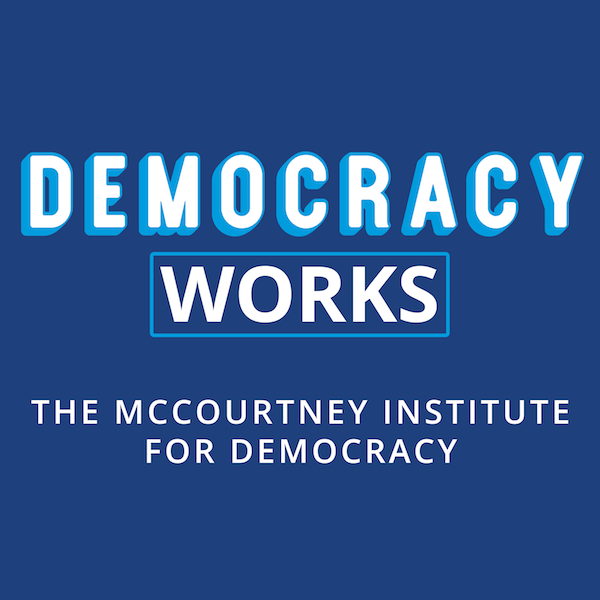We are partisans for democracy
What does it mean to be a partisan for democracy? We don’t take sides on the political spectrum, but we do defend the rights everyone has as a democratic citizen — from voting to protesting to consuming information from a free press that serves as a check on political leaders.
The McCourtney Institute for Democracy draws from the humanities and social sciences to examine democracy from multiple angles. This cross-discipline collaboration is evident in our research, education, and outreach efforts.
We educate the next generation of democratic citizens through our Nevins Fellows program, monitor attitudes toward democracy with the Mood of the Nation poll, and host speakers and events that bring people from diverse backgrounds and points of view together to discuss the role of democracy in our society.
We make all of this happen in partnership with our centers of excellence, the Center for American Political Responsiveness and the Center for Democratic Deliberation, and many other organizations throughout the College of the Liberal Arts and the broader Penn State community.
Stay Informed:
Democracy Works Podcast

With just weeks to go before the election, voting and candidates are top of mind of many of us. It’s easy to think that once our preferred candidates win, our obligations to democracy are finished until the next election. Scholar and author Eddie Glaude Jr. has spent his career studying the perils of that approach throughout history, particularly when it comes to Black politics and power. Glaude joins us to discuss how he’s thinking about the 2024 election, the difference between hope and joy, and why we can’t outsource democracy solely to elected representatives.
One of the nation’s most prominent scholars, Glaude’s work examines the complex dynamics of the American experience. He is the author of “We are the Leaders We Have Been Looking For,” “Democracy in Black: How Race Still Enslaves the American Soul,”and “Begin Again: James Baldwin’s America and Its Urgent Lessons for our Own.” He is the James S. McDonnell Distinguished University Professor of African American Studies, a program he first became involved with shaping as a doctoral candidate in Religion at Princeton. He is also on the Morehouse College Board of Trustees. He frequently appears in the media, as a columnist for TIME Magazine and as an MSNBC contributor.